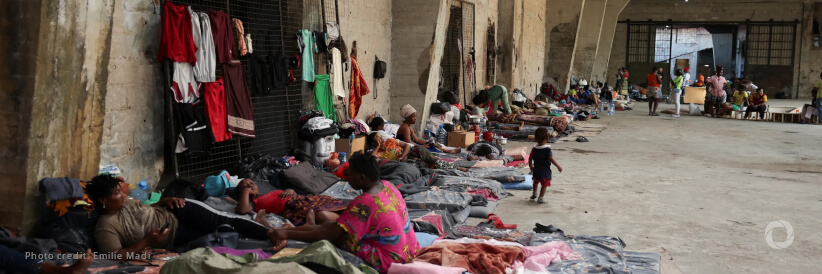In coordination with the Embassy of Bangladesh in Lebanon and local authorities, the International Organization for Migration (IOM) has organized the voluntary repatriation of 151 Bangladeshi migrants affected by the ongoing conflict in Lebanon.
The migrants departed from Beirut’s Rafic Hariri International Airport on the morning of 5 November and arrived in Dhaka, Bangladesh, on a charter flight. Upon arrival, they were welcomed by the IOM team in Bangladesh, with support from the European Union and collaboration with the Ministry of Foreign Affairs.
The flight is part of IOM’s ongoing efforts to assist migrants in Lebanon who wish to return home to escape the conflict.
“I was living in Dahieh, where the bombs weren’t just distant sounds; they were going off right next to us. I lived in constant fear, with no hope of being able to leave with my son and return to my home country. I felt so vulnerable, but now I am happy and grateful to be going back to my family,” shared Rubina, a Bangladeshi migrant returning home.
Before the current crisis, more than 180,000 migrants lived in Lebanon. IOM estimates that approximately 22,000 have been displaced by the conflict.
Migrants face numerous challenges when they decide to return. Some may have their passports confiscated by employers, while others encounter delays in obtaining exit visas. Additionally, commercial flight options are limited and expensive. To address these issues, IOM is working with embassies and consulates in Lebanon to secure travel documents and with authorities to expedite exit visas. IOM is also arranging charter flights as the most efficient means of transportation.
Since late September 2024, IOM has received over 20,000 new requests from migrants and their embassies in Lebanon seeking assistance to return to their countries of origin. If the conflict in Lebanon continues, IOM expects this number to rise further.

